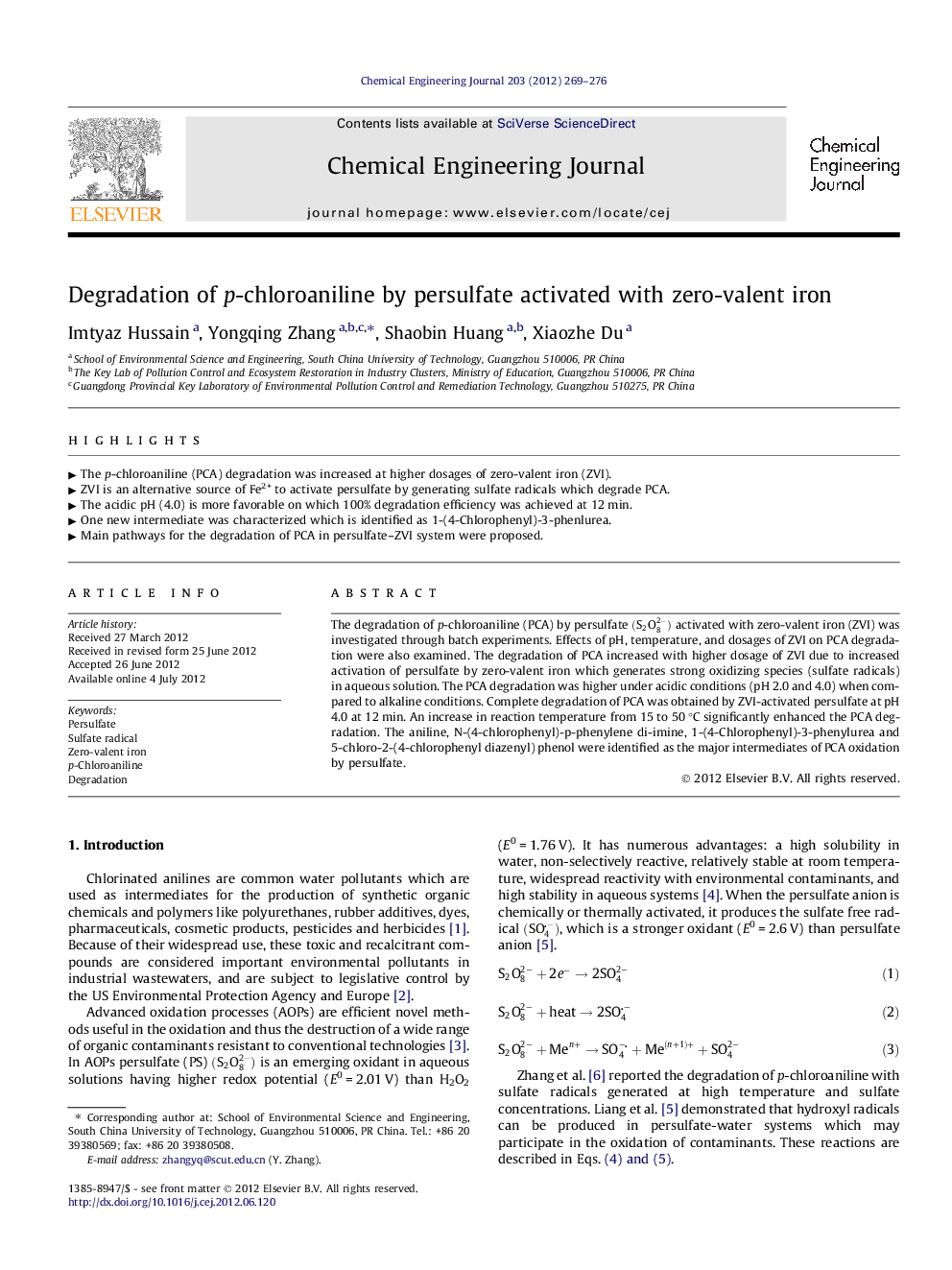| Article ID | Journal | Published Year | Pages | File Type |
|---|---|---|---|---|
| 149288 | Chemical Engineering Journal | 2012 | 8 Pages |
The degradation of p -chloroaniline (PCA) by persulfate (S2O82-) activated with zero-valent iron (ZVI) was investigated through batch experiments. Effects of pH, temperature, and dosages of ZVI on PCA degradation were also examined. The degradation of PCA increased with higher dosage of ZVI due to increased activation of persulfate by zero-valent iron which generates strong oxidizing species (sulfate radicals) in aqueous solution. The PCA degradation was higher under acidic conditions (pH 2.0 and 4.0) when compared to alkaline conditions. Complete degradation of PCA was obtained by ZVI-activated persulfate at pH 4.0 at 12 min. An increase in reaction temperature from 15 to 50 °C significantly enhanced the PCA degradation. The aniline, N-(4-chlorophenyl)-p-phenylene di-imine, 1-(4-Chlorophenyl)-3-phenylurea and 5-chloro-2-(4-chlorophenyl diazenyl) phenol were identified as the major intermediates of PCA oxidation by persulfate.
► The p-chloroaniline (PCA) degradation was increased at higher dosages of zero-valent iron (ZVI). ► ZVI is an alternative source of Fe2+ to activate persulfate by generating sulfate radicals which degrade PCA. ► The acidic pH (4.0) is more favorable on which 100% degradation efficiency was achieved at 12 min. ► One new intermediate was characterized which is identified as 1-(4-Chlorophenyl)-3-phenlurea. ► Main pathways for the degradation of PCA in persulfate–ZVI system were proposed.
